By: Dr. W. Scott West, Chief Medical Officer, Nashville Neurocare Therapy
Did you know that over 30% of people living with depression don’t experience relief from cognitive behavioral therapy or at least two rounds of antidepressants? This is called Treatment-Resistant Depression, or TRD. It’s more common than you’d think and not nearly as hopeless as it sounds. There are many innovative treatments besides talk therapy and medication that can help you find relief from your depression.
Two of the most successful treatments for treatment-resistant depression include TMS Therapy and Esketamine.
What is TMS Therapy?
Overview:
In depressed brains, the areas that regulate mood and behavior are often underactive. FDA-cleared in 2008, TMS Therapy uses magnetic-pulse technology to non-invasively stimulate the root source of your depression. Targeting these under-active areas of your brain, TMS Therapy encourages the brain to build and strengthen the neural networks there so that, over time, you can successfully manage your moods better.
How it’s administered:
TMS Therapy is non-invasive and painless. Sessions last less than 20 minutes, and you remain awake and conscious the whole time.
Full course of treatment:
A full course treatment of TMS Therapy includes five days a week for up to six weeks, or, at least 30 sessions total. Patients begin experiencing lasting clinical benefits after a few weeks of consistent treatment.
Side effects:
As a non-drug therapy, TMS has no adverse side effects. Some patients report mild scalp discomfort from the application. After your treatment, you can safely drive home and resume your day as usual.
Success and results:
In a real-world outcomes registry of over 14,000 patients, by clinician rating, 83% of patients responded to an acute course of TMS, and 62% achieved remission (Journal of Affective Disorders). “About one-third of these individuals experience a full remission, meaning that their symptoms go away completely” (Harvard Health). 68% of patients maintain their improvement over 52 weeks (Journal of Clinical Psychiatry).
What is Esketamine?
Overview:
Esketamine is a drug derived from ketamine that targets the NMDA receptor antagonist to help relieve depression. It has earned FDA approval for use as a nasal spray for treatment-resistant depression. Under the brand name Spravato®, esketamine is an especially potent form of ketamine with small dosages offering, theoretically, fewer side effects.
How it’s administered:
The esketamine nasal spray is administered by the patient at a healthcare facility under the supervision of their provider. This process helps avoid any drug misuse and allows the provider to monitor for adverse side effects.
Full course of treatment:
For a typical course of esketamine treatment, the nasal spray is administered twice a week for four weeks, then once a week for four more weeks. After that, the patient moves to treatment every one to two weeks. Patients are also prescribed an oral antidepressant to take during the course of their esketamine treatment.
Side effects:
The drug esketamine can trigger initial side effects, including dissociation, sedation, cognitive impairment, and elevated blood pressure. After administration, patients remain under the observation of their healthcare provider to ensure safety regardless of side effects. Once released, you will need someone to drive you home and, due to short-lived cognitive impairment, are advised to avoid operating heavy machinery until the following day.
Success and results:
Part of what makes esketamine so interesting as a treatment is its rapid effectuality. Many patients report feeling benefits from treatment on “a much shorter time scale than classic antidepressants,” with “a substantial portion of patients would experience dramatic improvement just four hours after dosing” (Psychiatric Times). In a double-blind, controlled study, esketamine plus an antidepressant demonstrated improvement in depressive symptoms at four weeks compared to placebo plus an oral antidepressant, with a response of 69.3% compared to 52% (The American Journal of Psychiatry).
TMS Therapy and Esketamine: a promising union.
While both TMS Therapy and esketamine nasal spray are efficacious treatments for treatment-resistant depression individually, an exciting study from July of 2022 shows that the combination of TMS Therapy and esketamine can “offer an augmentation treatment protocol to improve outcomes” (Brain Stimulation Journal). Following TMS Therapy with esketamine treatments can provide effective relief for treatment-resistant depression patients who haven’t had as much success as they’d like with TMS Therapy alone.
In the future, we may find that many healthcare providers are finding a way to leverage both treatments for the betterment of their patients with treatment-resistant depression.
At Nashville Neurocare Therapy, we specialize in treating depression with TMS Therapy. TMS Therapy, short for Transcranial Magnetic Stimulation.
If you’d like to learn more about TMS Therapy and how it could help you or somebody you love, feel free to request a consultation with our office. We’d love to see if TMS Therapy is a good fit for your path to healing.
About the Author: Dr. W. Scott West
Nationally recognized, board-certified psychiatrist, Dr. W. Scott West, blazed the trail for TMS therapy in Tennessee as the first physician to offer this advanced technology in 2010. With 30+ years experience in clinical depression, Dr. West leads the Nashville Neurocare team.
- Board Certified Psychiatrist
- Specialty: Certified TMS Psychiatrist since 2010
- Diplomate: The American Board of Psychiatry and Neurology
- Distinguished Life Fellow: American Psychiatric Association
- Residency: Vanderbilt University, Hospital Department of Psychiatry
- Medical School: University of Tennessee, Memphis, Center for the Health Sciences
- Hospital Affiliations: St. Thomas Hospital


